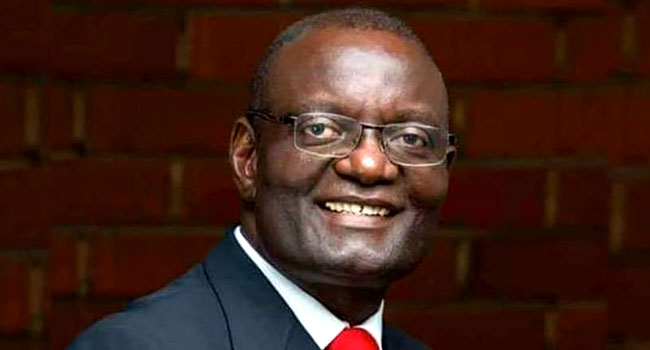Executive Secretary of the Nigerian Shippers’ Council, Hon. Emmanuel Jime, has announced that the focus of a new working agenda for port economic regulation would be on the implementation of the International Cargo Tracking Note(ICTN).
Speaking with Editors in Lagos, the Shippers’ Council boss said that the ICTN would drive efficiency in the port industry; deal with security challenges and boost revenue with respect to imports.
He added that the agenda, which is targeted at enhancing trade facilitation at the ports with efficiency, include consolidating on past projects and programmes he met on ground five months ago.
He identified ICTN project as imperative for bringing about better changes in the ports operations.
He added that the ICTN has the advantage of tracking the containers, checking concealment, under-invoicing as well as under-declaration by shippers who want to cheat government.
The ICTN will also expose shipping companies who may be in the habit of under-declaration of gross registered tonnage of vessels (GRT) in order to pay less charges.
The ICTN is expected to take off next year, he disclosed, adding that so far promoters have been identified with due diligence carried out.
Jime said what is remaining would be the announcement of the winner next year and commencement of the project.
He further disclosed that the management of the NSC has been making efforts in ensuring that enough safeguards were put in place on ICTN considering the events of the past when it came under criticism by industry stakeholders.
The Executive Secretary announced other agenda as completion of construction and commencement of operations of at least four Inland Dry Ports and at least two Vehicle Transit Areas in the country next year.
The project, according to him, would bring shipping services nearer to the hinter-land as well as security in the goods on transit to their importers.
He also announced plans to build and operate at least two Border Information Centers in the next 2 years.
On the much talked about Container Deposit paid by shippers, the Council CEO said the NSC plans to scrap Container Deposit in place of an Empty Container Insurance Scheme or Guarantee Scheme.
He said this would save shippers the nightmare they have been having in getting refund for container deposit after returning empty containers.
Jime also announced that the Council would enter into collaboration with the Federal Competition and Consumer Protection Commission (FCCPC) and the Shipping Companies, to have in operation a Consumer Protection Regime in the maritime international trade industry.
Reviewing the event of the past in which the FCCPC invaded the premises of some shipping companies, he said henceforth the Consumer Protection agency will only collaborate with the council on such issues.
He condemned the past action of the FCCPC as it was carried out without knowledge of the Council.
Jime said the collaboration has a lot of advantages as the Council lacks some necessary powers to bite unlike the FCCPC.
He also disclosed plans to sign a Memorandum of Understanding with Shipping Companies, details of which are still being worked out.
Among the plans of the NSC ES include development of a software application to enable shippers obtain from their hand set shipping and logistics information.
Such information will centre on Shipping news, Maritime Trade Statistics, Charges at the Ports, rotation number of vessels, local shipping charges and terminal Charge, lodging of Shippers Complaint.
The Council will also develop a software application for inland cargo tracking from ports to the final destination.
On trade facilitation, Jime said the Council plans “advocacy and creation of awareness for shippers to participate in both ECOWAS and AfCFTA Trade, Advocacy to eliminate gridlock, Advocacy to establish and operate the Single Window system, Advocacy to eliminate check points on trade corridors.”
On regulation, he said the plan is to “strengthen regulatory framework and develop a modus operandi for regulation, strengthen enforcement mechanism and confront activities of government agencies hampering trade.
Part of the measures include “standardizing processes and procedure, Resuscitate Cargo Defense Fund and make it operational within one year, Upgrade the Port Service Support Portal (PSSP) to make it more robust, Establish Export Desk at designated loading centers for Export to help in formalizing informal trade.”
Jime reiterated the desire to partner with the “relevant stakeholders towards seeing that the policies, agenda, projects and activities of the Council are achieved for the progress of the maritime industry and the Nigerian economy at large.”
Speaking also, the President General of the Maritime Workers Union of Nigeria (MWUN), Comrade Adewale Adeyanju, assured that his Union would support the NSC Executive Secretary and his management team for all the programmes that are being introduced for port economic development.
































































